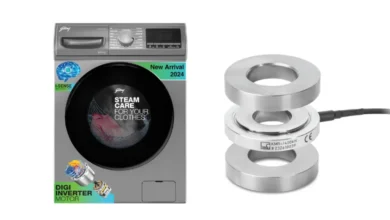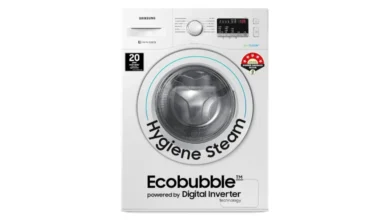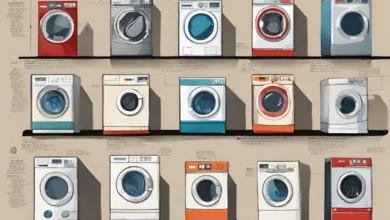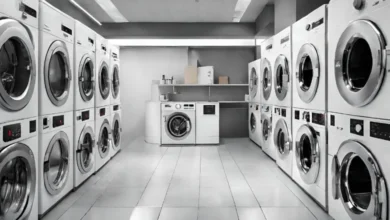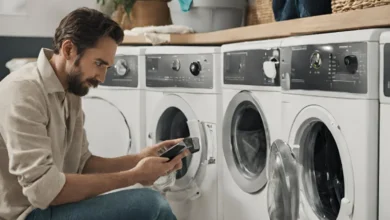Choosing the Most Energy-Efficient Washing Machines: A Comprehensive Guide
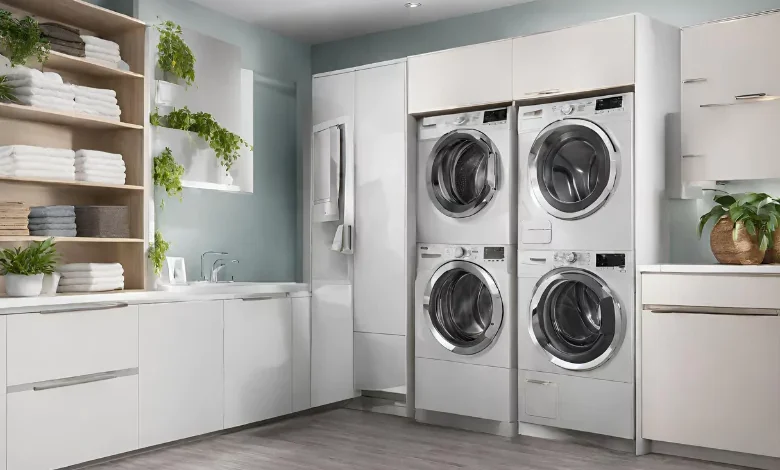
Selecting an energy-efficient washing machine is a crucial step in minimizing environmental impact and reducing utility bills. With numerous models on the market, understanding key factors and features becomes essential. In this detailed guide, we’ll explore various aspects to consider when choosing a washing machine that not only meets your laundry needs but also contributes to energy conservation.
Heading straight to the gold standard of energy efficiency, the Energy Star certification is a beacon for eco-conscious consumers. Products carrying this label meet stringent energy efficiency guidelines set by the Environmental Protection Agency (EPA). When browsing for a washing machine, make Energy Star certification a non-negotiable criterion.
Capacity Consideration: Right-sizing for Efficiency
While it’s tempting to opt for the largest capacity available, choosing a washing machine that aligns with your typical laundry load is more energy-efficient. Oversized machines consume unnecessary energy for smaller loads. Assess your laundry habits and select a capacity that matches your needs without excess.
Load Size Assessment
Begin by evaluating your average laundry load. Are you washing small loads frequently, or do you prefer larger loads less frequently? Understanding your typical usage patterns helps in determining the appropriate capacity.
Energy Usage Impact
Recognize that larger capacity machines tend to consume more energy. If your loads are consistently smaller, investing in a smaller capacity machine may lead to greater overall energy efficiency.
Front-Loading Models: Efficiency in Design
Front-loading washing machines have gained popularity for their efficiency in water and energy consumption. Unlike top-loading counterparts, front-loaders use less water and require lower energy input. The horizontal drum design allows clothes to tumble, facilitating better cleaning and reduced energy usage.
Horizontal Drum Advantage
The design of front-loading machines, with the drum positioned horizontally, promotes a cascading effect as clothes tumble. This allows for more effective washing with less water, contributing to both energy and water efficiency.
Space Consideration
Additionally, front-loading machines often have a sleeker design, making them suitable for tight spaces. This not only contributes to efficient use of space but also aligns with a modern aesthetic.
Water Factor: Gauging Water Efficiency
The water factor, a key metric in assessing washing machine efficiency, represents the amount of water consumed per cubic foot of laundry. A lower water factor indicates superior water efficiency. When comparing models, pay attention to this metric to ensure you’re making a water-conscious choice.
Understanding Water Factor Values
Water factor values typically range from 2 to 6, with lower values indicating better water efficiency. Take the time to understand these values and choose a machine with a lower water factor for optimal efficiency.
Water Factor vs. Energy Factor
While focusing on water efficiency is crucial, it’s essential to consider the energy factor as well. Some models strike a balance between water and energy efficiency, providing a comprehensive solution.
High RPM Spin Speed: Extracting Efficiency
The spin speed of a washing machine affects its water-extraction capability during the spin cycle. Higher RPM (revolutions per minute) means more water is extracted, reducing the time clothes need to spend in the dryer. This not only conserves energy but also extends the lifespan of your clothes.
Balancing Act
While high spin speeds offer advantages in terms of water extraction, it’s crucial to strike a balance. Extremely high spin speeds may lead to increased wear and tear on clothes. Consider a model with adjustable spin speeds to tailor it to your specific needs.
Reduced Drying Time
The efficient water extraction achieved through higher spin speeds translates to reduced drying time. This not only saves energy but also contributes to faster overall laundry cycles.
Also Read: Best Washing Machine in India
Cold Water Wash Option: Harnessing Cold Efficiency
Washing clothes in hot water contributes significantly to energy consumption. Opt for a washing machine that offers a cold water wash option. This feature not only conserves energy but also preserves the colors and fabrics of your clothes, making it a win-win for both efficiency and garment care.
Cold Water Detergents
Pair the cold water wash option with detergents specifically formulated for lower temperatures. These detergents enhance cleaning efficacy in cold water, ensuring your clothes receive optimal care without compromising energy efficiency.
Sensor Technology: Smart Efficiency
Modern washing machines often come equipped with sensor technology that adjusts water levels and wash times based on the load size and dirtiness. This intelligent feature optimizes energy usage by tailoring the washing process to specific needs, eliminating unnecessary resource consumption.
Load-Sensing Technology
Load-sensing technology is a key component of intelligent washing machines. By accurately gauging the size of the load, these sensors ensure that the machine uses just the right amount of water and energy, minimizing waste.
Adaptive Wash Cycles
Some advanced models go beyond simple load sensing, offering adaptive wash cycles that dynamically adjust based on factors such as fabric type and soil level. This level of customization enhances both efficiency and garment care.
Delay Start Feature: Timing for Efficiency
A delay start feature allows you to schedule laundry cycles during off-peak hours. By leveraging this feature, you can take advantage of lower energy costs during certain times of the day. This strategic scheduling not only conserves energy but may also contribute to cost savings on your utility bills.
Off-Peak Energy Rates
Understanding your utility’s off-peak hours is crucial for maximizing the benefits of the delay start feature. By aligning your laundry cycles with these hours, you can potentially reduce the environmental impact and save on energy costs.
Smart Home Integration
Some washing machines offer smart home integration, allowing you to control and schedule cycles remotely through a mobile app. This not only adds convenience but also facilitates better energy management.
Energy-Efficient Detergents: A Supporting Role
While the focus is often on the washing machine itself, the detergent you use plays a role in overall energy efficiency. Opt for detergents specifically designed for cold water washes. These formulations ensure effective cleaning without the need for additional energy to heat the water.
Enzyme-Based Detergents
Consider using enzyme-based detergents for cold water washes. These detergents contain enzymes that effectively break down stains and soils even in cooler temperatures, contributing to both energy savings and superior cleaning.
Concentrated Formulas
Concentrated detergents require smaller amounts per load, reducing packaging waste and the overall environmental footprint. Look for concentrated formulas that align with your commitment to sustainability.
Check Energy Consumption Label: The Final Comparison
Before finalizing your decision, scrutinize the EnergyGuide label on each washing machine. This label provides a snapshot of the appliance’s energy consumption, allowing you to compare different models side by side. Take note of the estimated annual energy usage to make an informed and energy-conscious choice.
Understanding the EnergyGuide Label
The EnergyGuide label not only displays the estimated annual energy consumption but also provides a comparison with similar models. Familiarize yourself with the information presented on the label, including the range of energy consumption for comparable models in the market. This detailed breakdown empowers you to make a well-informed decision based on your specific preferences and requirements.
Consider Total Cost of Ownership
While upfront costs are a significant consideration, it’s crucial to look beyond the initial purchase price. Assess the total cost of ownership, factoring in long-term energy savings, potential rebates, and the expected lifespan of the washing machine. This holistic approach ensures a comprehensive evaluation of your investment.
Conclusion
In conclusion, the journey to choose an energy-efficient washing machine involves a meticulous examination of various factors. From certifications to spin speeds, sensor technologies to detergent choices, each element plays a vital role in determining the overall efficiency of the appliance. By delving into the details, you not only make a sustainable choice for the environment but also potentially save on long-term utility costs.

